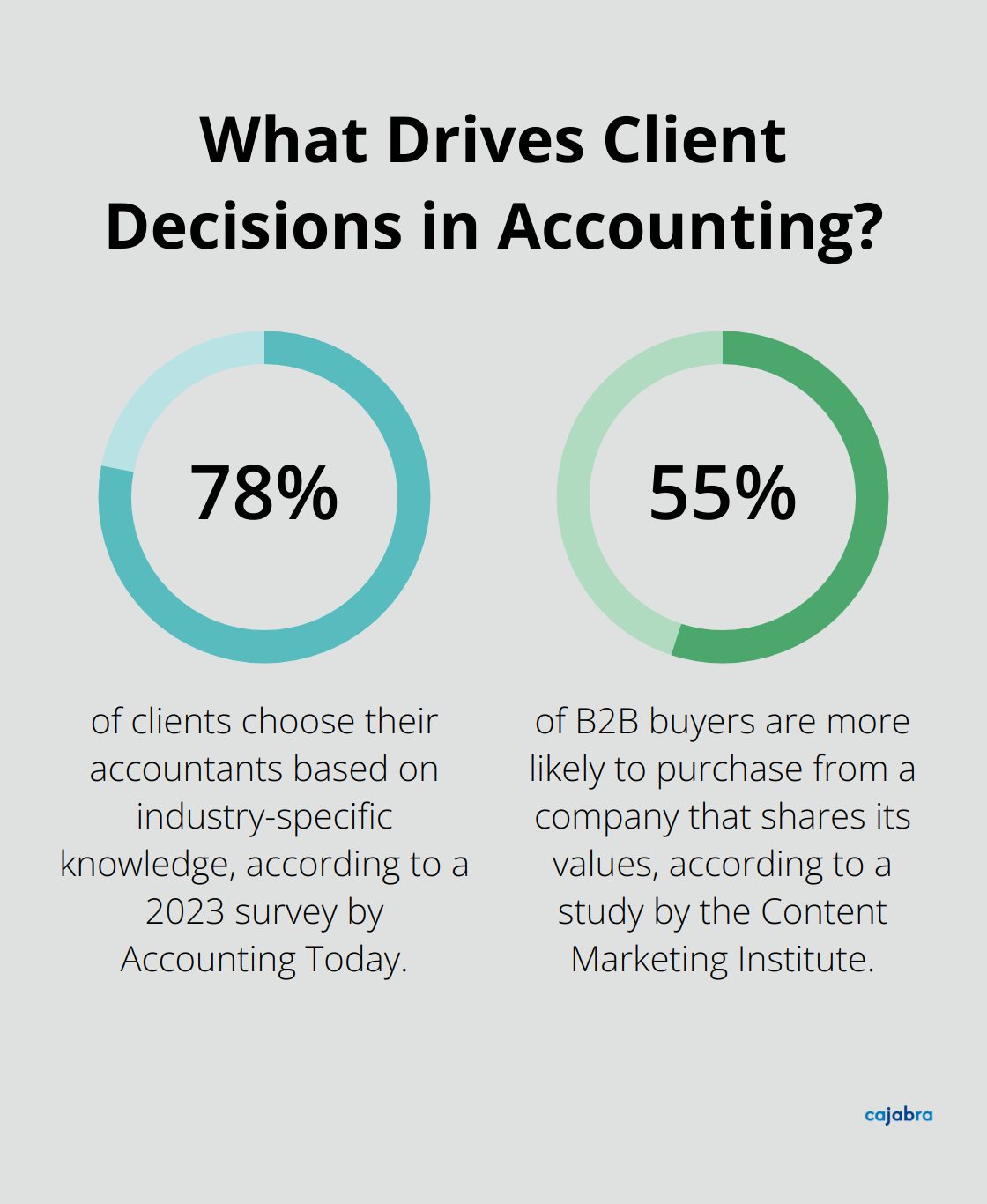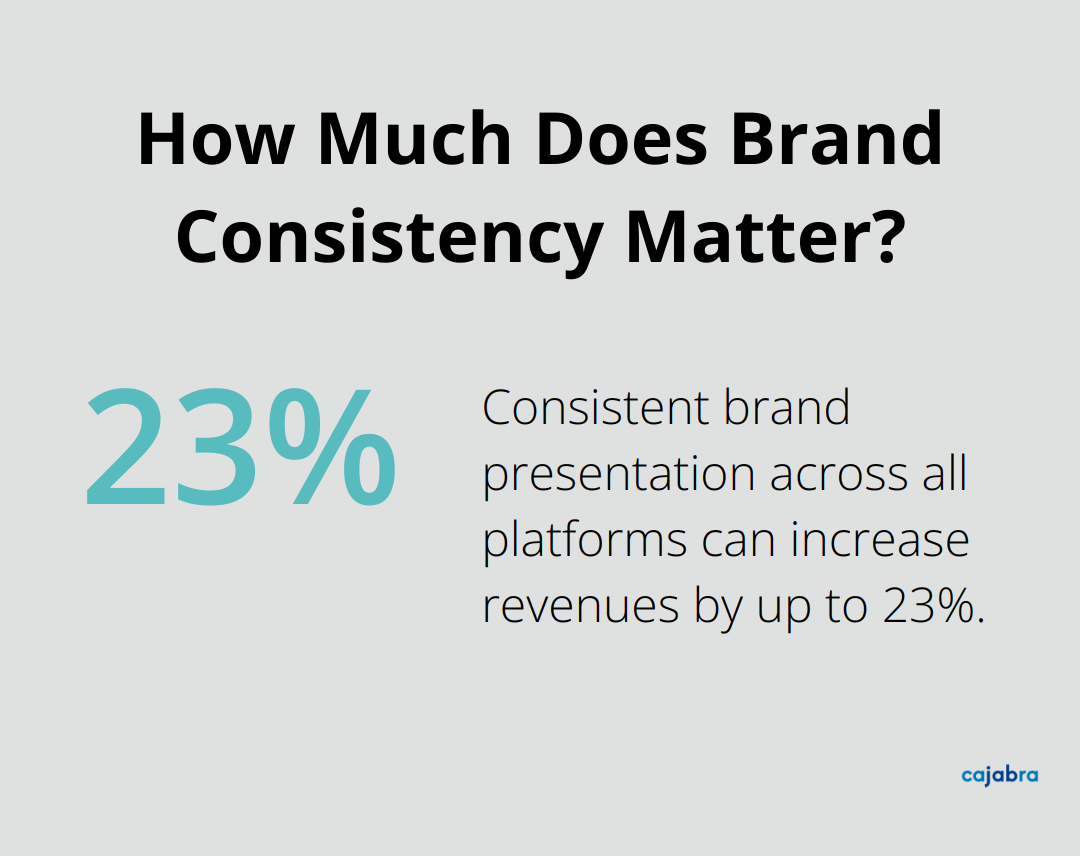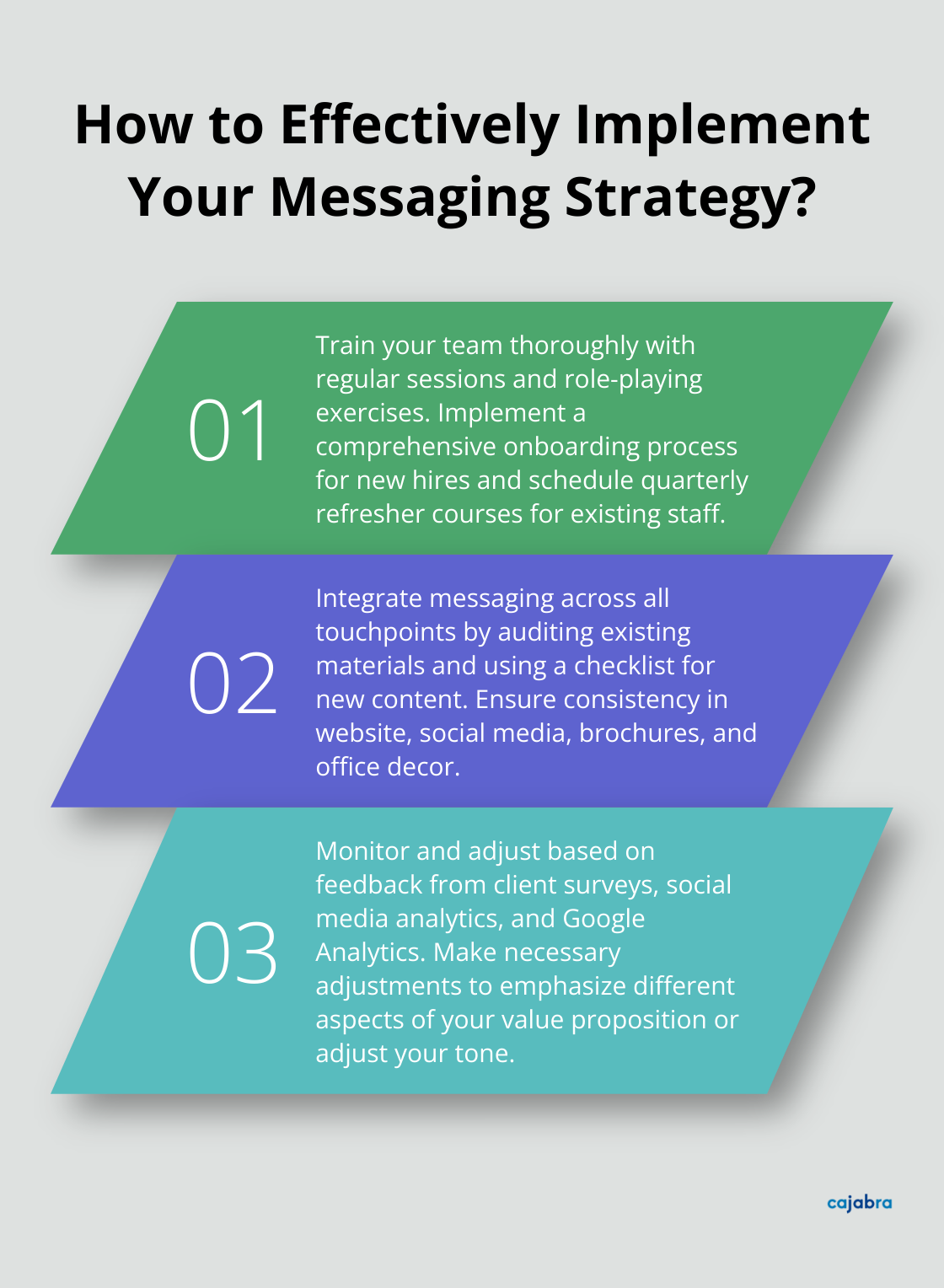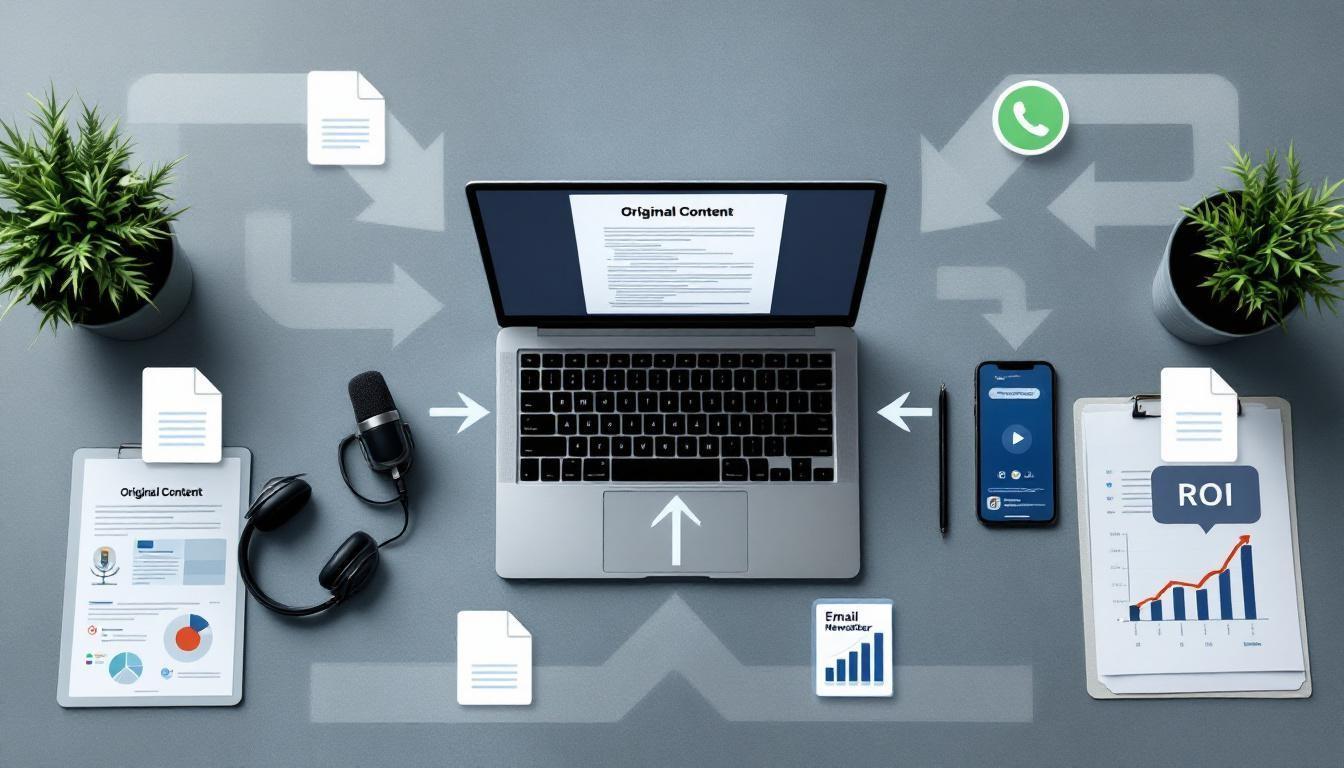
At Cajabra, LLC, we know that effective communication is the cornerstone of any successful brand. But what is a messaging strategy, and why does it matter?
A well-crafted messaging strategy serves as the foundation for all your brand's communications, ensuring consistency and impact across every touchpoint. In this post, we'll explore how to develop and implement a powerful messaging strategy that resonates with your audience and drives results.
Your brand's core message forms the foundation of a powerful messaging strategy. To develop a message that resonates with your target audience and sets you apart, start by identifying what makes your brand different. For accounting firms, this could be specialized expertise, innovative technology, or exceptional customer service. A 2023 survey by Accounting Today revealed that 78% of clients choose their accountants based on industry-specific knowledge, highlighting the importance of showcasing your unique strengths.

To uncover your unique value, analyze your services, client feedback, and market position. Look for patterns in client testimonials or reasons why clients prefer you over competitors. These insights will shape your core message.
Understanding your target audience is essential. For accounting firms, this means identifying the specific industries or types of businesses you serve best. Focusing on one type of client can help CPA firms develop unique expertise that distinguishes them from their competition.
Create detailed profiles of your ideal clients. What are their pain points? What challenges do they face? For instance, many small business owners struggle with cash flow management. If you offer solutions to this problem, make it a key part of your messaging.
Your brand story should communicate your values, mission, and the impact you have on clients' lives. A study by the Content Marketing Institute found that 55% of B2B buyers are more likely to purchase from a company that shares its values.
When crafting your narrative, focus on the transformation you provide. Instead of saying "We offer tax preparation services," you could say "We help small businesses navigate complex tax laws, saving them time and money." This approach highlights the value you bring to your clients' businesses.
Keep your message clear and jargon-free. While you're an expert in accounting terms, your clients may not be. Use language that resonates with them and clearly communicates the benefits of working with your firm.
Your core message should address the specific needs and challenges of your target audience. For example, if you specialize in serving small businesses, your message might emphasize how you help them grow and scale their operations. If you focus on high-net-worth individuals, your message could highlight your expertise in complex tax planning and wealth management.
Try to incorporate client testimonials or case studies that demonstrate the real-world impact of your services. This social proof can significantly strengthen your core message and make it more compelling to potential clients.
In a competitive market, it's crucial to differentiate your brand from others. Your core message should clearly communicate what sets you apart. This could be your unique approach to client service, your use of cutting-edge technology, or your specialized expertise in certain industries.
For instance, if you're using AI-powered tools to enhance your services, make this a key part of your message. Highlight how this technology translates into better outcomes for your clients, whether it's more accurate financial forecasts or faster turnaround times.
A strong core message serves as the North Star for all your marketing efforts. It guides your content creation, social media strategy, and client interactions, ensuring a consistent and compelling brand presence across all channels. In the next section, we'll explore how to develop a consistent messaging framework that builds on this core message.
A consistent messaging framework transforms an accounting firm's marketing efforts. Start by identifying 3-5 key messaging pillars that support your core message. These pillars should reflect your unique value proposition and address your clients' main pain points. For example, an accounting firm might focus on expertise, technology, personalized service, industry specialization, and proactive financial planning.

Each pillar should have specific proof points or examples. If technology is a pillar, highlight your use of cloud-based accounting software or AI-powered tax preparation tools. Be specific about how these technologies benefit your clients.
Your core message remains consistent, but how you communicate it should adapt to different channels and audiences. A LinkedIn post targeting CFOs will differ from an email newsletter for small business owners.
For social media, keep messages concise and engaging. Twitter's character limit forces brevity, so focus on one key benefit or insight per tweet. On LinkedIn, you can explore industry trends or share thought leadership content more deeply.
Email marketing allows for more detailed communication. Segment your email list based on client types or industries, and tailor your messages accordingly. According to DMA, marketers have found a 760% increase in email revenue from segmented campaigns.
Your website should serve as a comprehensive resource, expanding on each messaging pillar with dedicated pages or sections. Use clear, benefit-focused headlines and support claims with case studies or client testimonials.
Your brand voice is the personality you convey in your communications. For accounting firms, this often means striking a balance between professionalism and approachability. Your tone may vary slightly depending on the context, but should always align with your overall brand voice.
Create a simple guide that outlines your brand voice and provides examples of do's and don'ts. This guide might include:
Words to use (e.g., "proactive," "expert," "partner")
Words to avoid (e.g., "cheap," "basic," "complicated")
Tone descriptors (e.g., "confident but not arrogant," "helpful but not condescending")
Share this guide with everyone involved in creating content for your firm, from social media managers to partners writing thought leadership pieces.
Consistency is key in brand presentation. A report by Lucidpress shows that consistent brand presentation across all platforms can increase revenues by up to 23%. Try to maintain a unified look and feel across all your marketing materials, from your website to your social media profiles to your email signatures.
This consistency extends beyond visual elements to the language and messaging you use. Every piece of content should reinforce your key messaging pillars and reflect your brand voice. Regular audits of your marketing materials can help ensure this consistency.
As we move forward, we'll explore how to implement this messaging framework effectively across your organization and marketing efforts.
Your team forms the frontline of your brand communication. Every employee should understand and embody your messaging strategy. We recommend regular training sessions to ensure alignment across the organization.

Implement a comprehensive onboarding process for new hires. This process should include an in-depth review of your messaging guidelines, brand voice, and key pillars. For existing staff, schedule quarterly refresher courses to keep the messaging strategy at the forefront.
Role-playing exercises prove particularly effective. These exercises include scenarios for practicing feedback in a supportive environment, building skills and confidence. Ask team members to practice communicating your value proposition in various scenarios (such as client meetings or networking events). This hands-on approach helps internalize the messaging and builds confidence in delivery.
Consistency plays a key role when implementing your messaging strategy. Every piece of content should reflect your core message and brand voice.
Start with an audit of all existing marketing materials. This audit should cover your website, social media profiles, brochures, and even office decor. Identify any inconsistencies and update them to align with your new messaging strategy.
For new content creation, use a checklist to ensure alignment with your messaging framework. This checklist should include questions like:
Does this content reflect our key messaging pillars?
Does the tone match our brand voice?
Does it address our target audience's pain points?
Have we included our unique value proposition?
Your messaging strategy should evolve based on audience feedback and market changes. Implement a system to regularly gather and analyze feedback from various sources.
Client surveys provide valuable insights. Ask specific questions about how well your messaging resonates with them. For example, "How well do you feel we understand your business challenges?" or "What aspects of our service do you find most valuable?"
Social media analytics reveal which messages resonate most with your audience. Pay attention to engagement rates on different types of posts. If posts about your technology solutions get more traction than those about your industry expertise, consider adjusting your messaging emphasis.
Google Analytics uncovers which pages on your website perform best. If your "Services" page has a high bounce rate, it might indicate that your messaging doesn't clearly communicate your offerings.
Based on this data, make necessary adjustments. You might need to emphasize a different aspect of your value proposition or adjust your tone to better connect with your audience.
Technology can help maintain consistency in your messaging across various platforms. Consider using tools like content management systems (CMS) or customer relationship management (CRM) software to centralize your messaging assets and ensure all team members have access to the most up-to-date information.
Some CMS platforms allow you to create templates with pre-approved messaging elements, making it easier for team members to create on-brand content. CRM systems can help personalize your messaging for different client segments, ensuring that each communication aligns with your overall strategy while addressing specific client needs.
To truly understand the effectiveness of your messaging strategy, establish key performance indicators (KPIs). These might include metrics such as website conversion rates, client acquisition costs, or client retention rates.
Regularly review these KPIs to assess the impact of your messaging strategy. If certain metrics don't improve as expected, it may indicate areas where your messaging needs refinement.
A strong messaging strategy forms the backbone of effective brand communication. We explored what a messaging strategy is and why it matters for accounting firms in a competitive market. You create a powerful brand identity by defining your core message, developing a consistent framework, and implementing it across all touchpoints.

Your messaging strategy should evolve with your business and client needs. Regular reviews and refinements ensure your message remains relevant and impactful. Effective brand communication requires commitment and consistency from your entire team.
At Cajabra, we help accounting firms develop and implement powerful messaging strategies. Our JAB System™ moves accountants from overlooked to overbooked in just 90 days. If you want to elevate your firm's brand communication and attract more retainer-based clients, visit our website to learn how we can support your growth journey.



